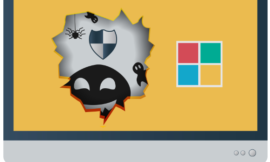Aviva Zacks of Safety Detectives had the opportunity to sit down with Yuen Pin, CEO of NeuShield. She asked him about his company’s anti-ransomware solution Data Sentinel.
Safety Detectives: What has your journey to cybersecurity been like?
Yuen Pin: My journey to cybersecurity started more than 20 years ago when my old boss jumped ship to a cybersecurity startup called Sygate Technologies and asked me to join him. Before that career path change, my daily job was to tune Windows graphic driver in assembly language and research various Windows components to squeeze every CPU cycle out in performance tests. In this job, I debugged and reverse-engineered Windows regularly. My first task at the new company, Sygate, was to create a firewall driver platform for the Windows ecosystem, starting from Windows 9x through Windows NT. Windows operating systems (OS) in those days had no API support for intercepting network traffic, so I had to create my own shim into the operating system to filter network traffic from the packet to the application layer. Over time, as my knowledge in hacking techniques grew, I generalized the API hooking techniques and extended them to cover various aspects of OS APIs to protect the computer from additional cyberattacks. Hence, the managed firewall eventually matured into an all-encompassing managed endpoint security solution, called Sygate Enterprise Protection. In 2005, Sygate was acquired by Symantec, and Sygate Enterprise Protection became part of Symantec Endpoint Protection. Many remnants of Sygate Enterprise Protection, such as the key drivers teefer and sysplant drivers remained in Symantec products for many years after I left. Symantec has been a powerhouse in cybersecurity, especially in the area of antivirus and malware detection. I learned a lot of valuable knowledge in antivirus and malware while working there. After I left Symantec, another old boss, John McCormack, who later became the CEO of Websense/Forcepoint offered me a job at Forcepoint to build a product for their Data Protection Suite. My stint there allowed me to grow my cybersecurity horizon further to include data protection, which is rarely covered in endpoint security solutions. These experiences are key to our later journey in creating a product that is effective against ransomware attacks.
SD: What is your company’s flagship product?
YP: NeuShield’s flagship product is NeuShield Data Sentinel, an anti-ransomware solution that protects and instantly recovers the data from ransomware, including targeted and undetectable attacks.
SD: How do you stay ahead of the competition?
YP: My team has many years of experience in creating anti-malware and data protection solutions. We know the market and competitors well. Our strategies are to create a paradigm shift in the fight against ransomware where we focus on protecting the customer’s data, instead of worrying about how to detect millions of new malware samples that flow into the system every day and fighting the enormous battle of detecting every one of them quickly. In addition, creating endpoint security software using low-level programming languages that work seamlessly at the kernel level across millions of computers is difficult and requires many years of experience to achieve.
SD: What are the worst cyberthreats today?
YP: Ransomware is the single most destructive cyber threat today, bar none. To most companies in the 21st century, having the company computer and data held hostage by malware is an existential threat. As reported by the FBI and CISA, the ransomware problem has been growing every year since the mid-2000s. In 2020 alone, the damage was estimated to be $20 billion. Every indicator points to the increased cost of damage in the years to come.
SD: How is the pandemic changing the way companies handle cybsersecurity?
YP: The pandemic is forcing many employees to work from home. Many bring their computers from a well-protected company environment to home. As most home networks are easier to compromise compared to enterprise-grade networks, companies have had to make sure these devices are protected by endpoint solutions. Some companies have gone as far as deploying Always-On-VPN on those remote computers to encrypt all traffic and make it harder to sniff the network.
Source of Article



